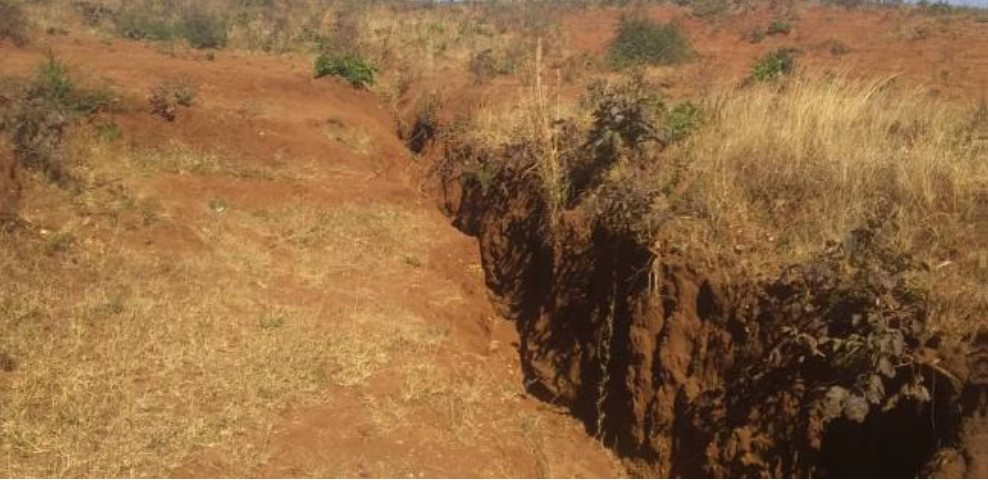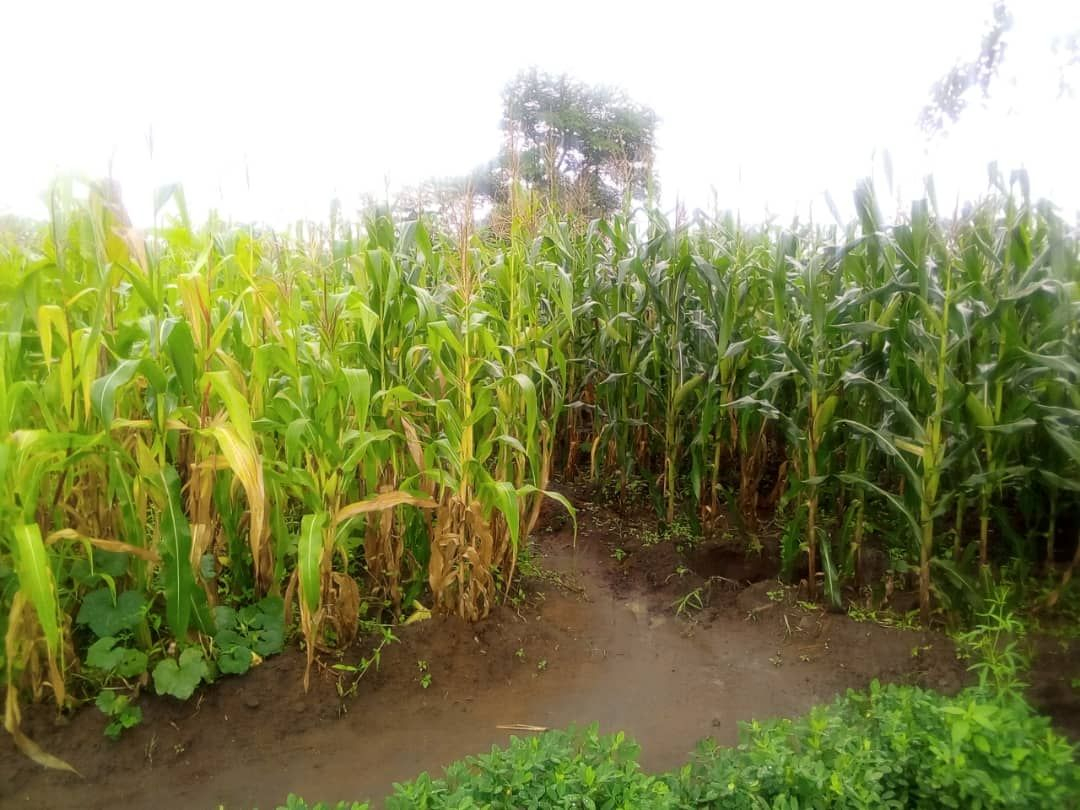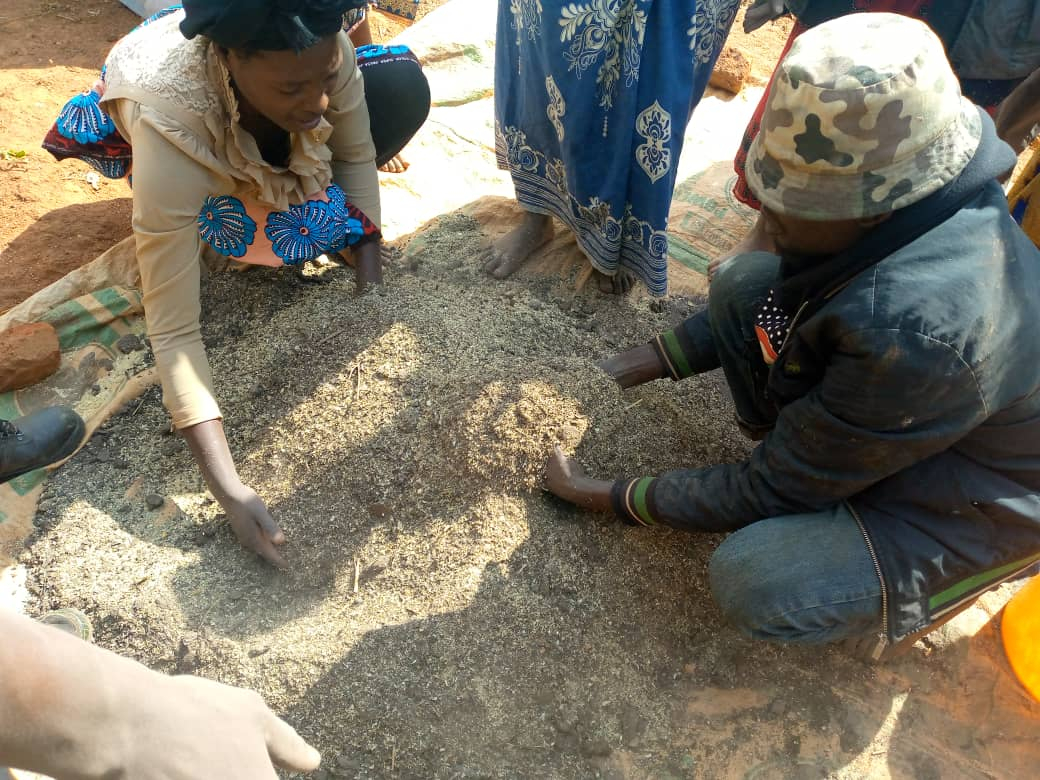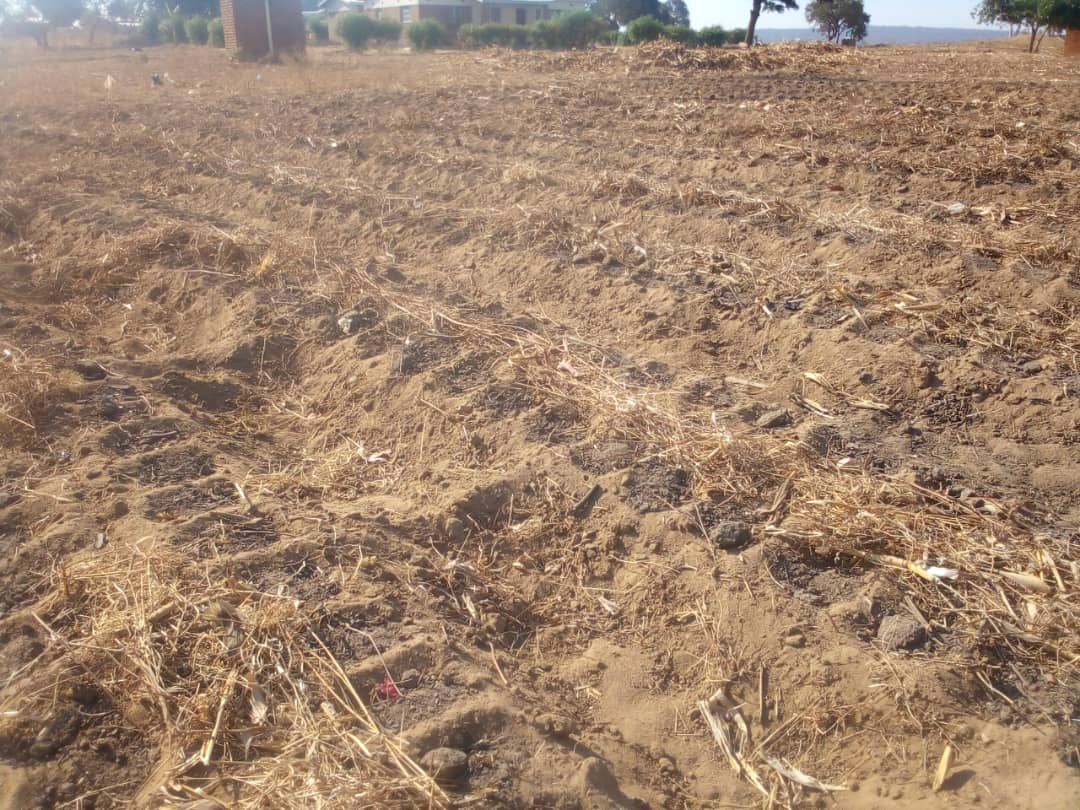November Supporter Newsletter
5 November 2021
Soil - The Treasure Beneath Our Feet
Welcome to this new supporters' newsletter. We are so glad you have joined us. In this update, we ask, why healthy soils?
Often ignored because it is beneath our feet and out of sight, the soil is vital to the world biome. Over the last 70 years, particularly, humans have impacted on it through frequent ploughing, treating it with chemical fertilisers, pesticides and herbicides and mono-cropping vast fields with heavy machinery, producing, among many other negative results, huge plumes of CO2 by disturbing or destroying soil micro-organisms. This takes CO2 from the soil and adds it to the atmosphere. Around a third of CO2 emitted through human activity since 1850 has come from agriculture.
There is widely published evidence that if soils are properly treated and respected, they can keep large amounts of carbon underground, where it helps crops to grow well. In addition, soils even if heavily degraded carry a large potential for sequestration of carbon, pulling it out of the atmosphere.
It is through the plants and other organisms supported by the soil that this sequestration takes place. Leaves, stems, and roots are built from carbon, and when the roots penetrate more deeply into the soil, as on Deep Bed farms, they carry carbon down with them where it stays underground, feeding the microorganisms and fungi in a symbiotic relationship that provides an exchange of mineral nutrients to the plants and builds greater carbon amounts in the soil and those very microorganisms.
Skip the advert to watch the FAO video below
Changes in land use can have large impacts on soil carbon levels. "The growth of farmland has released about 110 billion metric tons of carbon from the top layer of soil—roughly equivalent to 80 years’ worth of present-day U.S. emissions" (Soil-Based Carbon Sequestration).
According to the '4 per 1000' initiative, launched after the Paris Climate Change talks in 2015, increasing the quantity of carbon contained in the soils by just 0.4 per cent a year would significantly reduce the annual increase of CO2 in the atmosphere. This would go a considerable way to achieving the Climate Change objective of limiting global temperature increase 1.5/2 degrees C, while at the same time increasing global food security by improving soil fertility and stability.”
The problem
Soil erosion also decreases the soil’s potential to help us mitigate and adapt to climate change. Due to degeneration, most soils in Malawi contain approximately 1% organic content and we have recorded soil organic content as low as 0.84%. Our charity, Tiyeni, works in Malawi, where topsoil loss has been measured at an astonishing 29 tonnes per hectare EVERY YEAR, in large part due to the way the land is treated by those living on (and off) it.
We have a rising population but falling soil fertility and a fall in the amount of healthy soil to grow crops in, with a falling level of carbon in that soil as CO2 is given off with all the tilling that takes place. These farmers work SO VERY HARD, and yet every year the produce from the land is inexorably less.
And yet there are really simple solutions to this, and if those solutions were adopted country wide and beyond, every single person on this planet would benefit!

Building carbon
Tiyeni has developed a new Malawian technology that is doubling yields through building soil fertility called Deep Bed farming. The method involves first using a pickaxe to break up hard compacted layers of earth several inches under the ground. Next is the creation of the Deep Beds. These are designed to minimise water runoff, to maximise water retention, and to prevent a new hard compacted layer from developing under the ground allowing roots, water and air to penetrate downwards on a long-term basis. To this (already transformational) method we harness other healthy farming practices, such as good composting, cover crops, mulching, contour planting and crop rotation.

We encourage farmers to use plant residues as mulch and as organic matter to feed back into the soil, rather than burning them off. Soon after adoption of the methodology, farmers start to reduce and then start to cease using expensive artificial fertilisers, and instead, with minimal disturbance of the soil, use mulch, compost and green manure cover crops. The result is a massive increase in crop yields as the soils become fertile again. Yes, carbon levels are rebuilding in that cared-for soil!

Independent research this year found that 100% of farmers sampled reported a measurable reduction of soil erosion and loss of water after adopting DBF.
The rate of application of carbon-based compost by Tiyeni farmers is high. Data collected by our team shows that adding just 2 handfuls of compost to each planting hole gives between 2 and 5 tons of new carbon material to the hectare. Independent research this year found that compost was applied to farmed land by only 13.5% of farmers before the arrival of DBF. Following DBF training 100% of farmers were using home-made compost and no farmers were reliant just on artificial fertiliser any more.
If we look in broader terms at the carbon cycle, this is where the key to maintaining healthy soil is. Managed properly, the carbon cycle can ensure that the soil organic content is always as high as possible, above 2 percent. Using Deep Bed farming we target to increase organic matter to not less than 2.5%.
Soil measurements are important and carried out in collaboration with Lunyangwa Agriculture Research Station, which conducts professional soil sampling and testing for our farmers. Other soil targets for DBF are:
- N is mostly 0.09% on average and we want to increase it to above 0.2%
- P is currently at <20 mg/g and should increase to >25 mg/g.
- K in 0.15 cmol/kg and should increase 0.2 cmol/kg.

Support our work
It’s only by joining forces that we can stop soil erosion and keep soil where it belongs. We are so grateful for your ongoing help towards our work in Malawi. Donations are of course, always welcome and we are sure you are aware of just how great an impact in Malawi is achieved by even small donations. However, there are many other ways to help us amplify smallholder voices that don’t involve donating. For example, sharing and commenting on our Facebook, Twitter and Instagram posts is also an incredibly powerful way to spread the word.
Or maybe the prospect of helping these farmers achieve a better livelihood might trigger an idea of how some of your skills might be useful to Tiyeni. We are always open to ideas. And a big thank you for your interest to date.
With our warmest regards,
The Tiyeni team